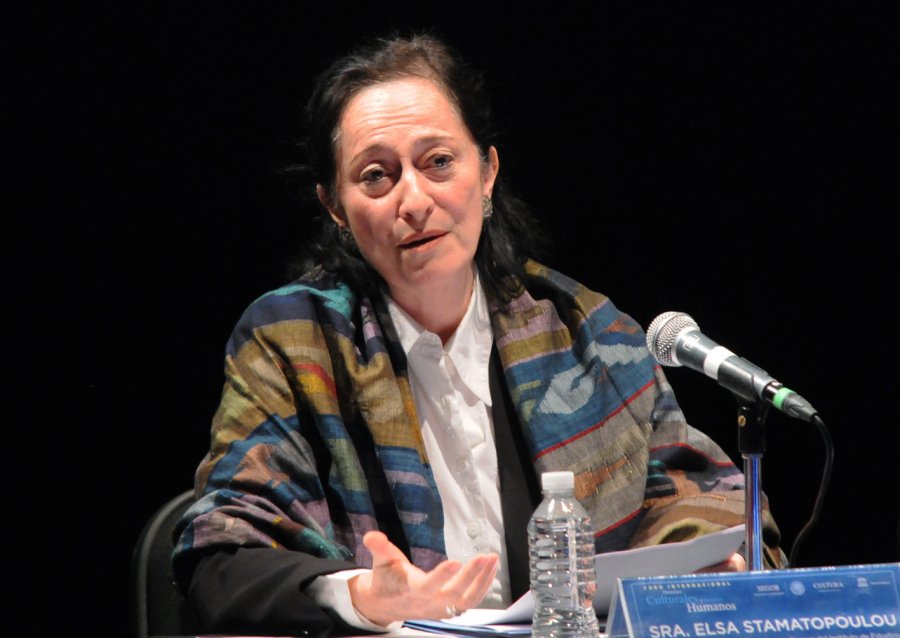Noticias
International Cultural and Human Rights Forum
"The cultural development represents the soul, moral monument and self-esteem of a community": Elsa Stamatopoulou·
November 15, 2016Cultural rights have to do with human dignity, with people’s realities, voices and expressions, as they experience life and define it, Elsa Stamatopoulou, director of the Indigenous Rights program of the Institute for Human Rights Studies at the University of Columbia, (USA) said.
In a lecture at the theater of the National Center of Arts (Cenart, for its acronym in Spanish), and as part of the International Cultural and Human Rights Forum, the specialist of Greek origin referred to the role of human and cultural rights.
The associate professor of the Center for the Study of Ethnicity and Race of the Department of Anthropology at Columbia University said that institutions, organizations and people should care about the protection of cultural rights because of its “deep” significance towards human dignity.
She explained that cultural rights require the cooperation of two fields of knowledge: law and anthropology, since without them it is not possible to analyze, understand and discover the normative content of these rights in an appropriate manner nor to pressure the government to apply laws of protection.
Although, for traditional jurists the issues that are related to culture are somewhat vague, they do not have the clarity of law regulations and are taken as a secondary problem, she said.
The specialist questioned why cultural rights have been ignored, among the answers, is the decision of many experts to avoid discussion, since the definition of cultural rights is related to the concept of the right to culture, which is fluid and changing, she said.
Another reason why cultural rights are not taken into consideration as they should be is because they are seen as a luxury, especially in countries with economic crisis. "The right to bread and water is first however the cultural development represents the soul, moral monument, self-definition and self-esteem of a community”, she said.
In the field of international law, there are human rights that are understood as cultural: the right to education, to participate in cultural life, to enjoy the benefits of scientific progress and its applications, to benefit from the protection of moral and material interests of any literary and artistic production, as well as the freedom of scientific research, she pointed out.
"I think the motivation to pay attention to cultural rights is to see the characteristics of the board we are on: globalization and polarization, north-south tensions, culturalization of political life and political rhetoric of migration, racism , cultural relativism, peace, security, major economic interests and the impact of the criminalization of cultures and social justice movements”.
"Recognizing our cultural rights as legal rights is a bold statement that requires action, in a world we live in is more urgent than anything else”, Elsa Stamatopoulou said.
The International Cultural and Human Rights Forum, convened by the Departments of the Interior and Culture, in collaboration with the UNESCO Office in Mexico, will continue with round tables on November 15th and will present their conclusions on Wednesday, November 16th. The transmission via streaming can be followed at https://interfaz.cenart.gob.mx/video/derechos-cultural-rights-humans/.
Mexico,Distrito Federal
